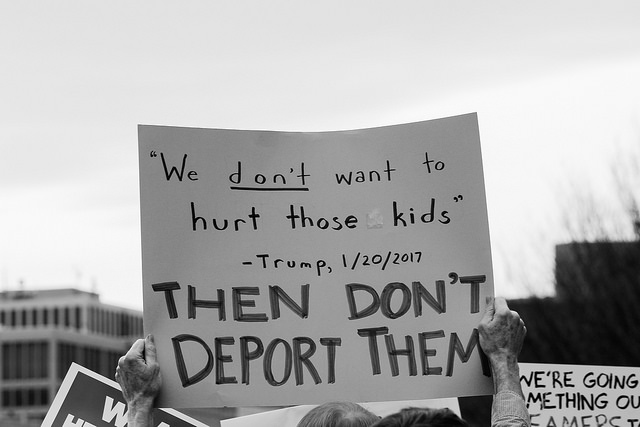It is with great sadness that we report that today, Monday January 8, 2018, the Secretary of Homeland Security, Kirstjen M. Nielsen, has formally decided to terminate the Temporary Protected Status (TPS) designation for the country of El Salvador. This decision is extremely upsetting given that Salvadorans were among the largest group of foreign nationals receiving temporary provisional residency permits under the TPS program in the United States. The consequences of this decision are even more troubling considering the plight that Salvadorans face in their home country. For more than a decade, the country of El Salvador has been plagued by soaring gang violence, drug trafficking, human smuggling, and an endemic rate of violence against women.
Per today’s statement issued by the Department of Homeland Security, the TPS designation for El Salvador will officially terminate on September 9, 2019. This means that the Department of Homeland Security will give Salvadorans a period of 18 months, before terminating their provisional residency permits on September 9th, to allow Salvadorans to make an orderly departure from the United States or to seek alternative legal means to remain in the United States.
According to the Washington Post, the United States has issued approximately 200,000 provisional residency permits to Salvadorans, many of whom have been living in the country since 2001. Salvadorans were first given Temporary Protected Status in 2001 when a series of large earthquakes devastated the impoverished country. Since 2001, the United States government has renewed their temporary permits on an 18-month basis.
 Visa Lawyer Blog
Visa Lawyer Blog











